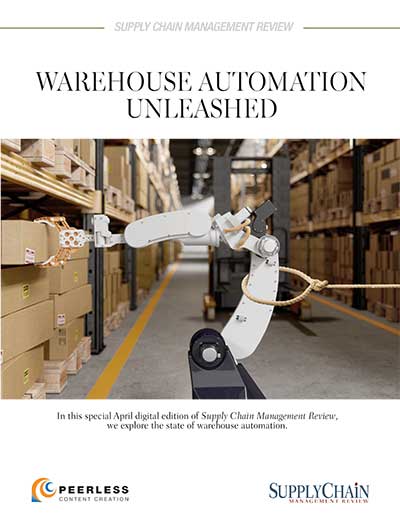 Editor’s Note: Guilherme Frederico is Associate Professor of Supply Chain and Operations Management – School of Management – Federal University of Paraná - UFPR - Brazil
Editor’s Note: Guilherme Frederico is Associate Professor of Supply Chain and Operations Management – School of Management – Federal University of Paraná - UFPR - Brazil
How can Supply Chains 4.0 be more resilient against Coronavirus?
Supply Chain 4.0 has been one of the most topics of interest by practitioners and researchers on the advent of disruptive technologies from Industry 4.0. But, what Supply Chain 4.0 really does it means? Supply Chains 4.0 are those supply chains with adoption of a mix and interoperable disruptive technologies from Industry 4.0.
These main technologies which in majority of cases must be rightly integrated one each other are: Internet of Things - IoT, Big Data Analytics, Cloud Computing, Robotics, Additive Manufacturing, Blockchain, Augmented Reality and Artificial Intelligence. The properly adoption of these technologies provides better levels of interconnection between supply chain members fostering the aspects such as visibility, integration, responsiveness, efficiency, transparency and flexibility along the supply chain processes.
In the current context of COVID-19 outbreak, which supply chains are facing higher risk of disruptions, one relevant question that rises is: how the adoption of these disruptive technologies could become supply chains more resilient against possible disruptions from the COVID-19 outbreak?
This question may be answered from different ways depending on the type of supply chain you are considering and on the level of maturity which it has in terms of technology adoption. Some kind of supply chains will require more technologies than other ones in order to obtain a breakthrough in the supply chain performance. Also, there will be technologies which are adequate for such kind of supply chains but are not to others.
However, in general some of the following main Industry 4.0's technologies are being used to get a technological transformation in manufacturing and services industry.
Internet of Things – IoT and Cloud Computing:
Internet of Things – IoT promotes the complete interconnection between machines and information flows in the supply chains with the use of sensors technologies and cloud computing together. This may generates a more responsive supply chains on the physical and information flows. Suppliers can be more responsive to the demand variations and inventory coverage by the faster and more visible supply chain data and information. On the same sense, the needs from dealers and final customers can be transmitted directly to the distribution centers, factories and suppliers, generating a more proactive decision making regarding purchasing and procurement, production and delivery processes.
Robotics and Additive Manufacturing:
The adoption of Robotics on factories and distribution centers, being them interoperable with IoT and Cloud Computing technologies, helps on the supply chain responsiveness as well as becomes supply chain processes more efficient. Also, additive manufacturing allows higher flexibility in terms of demand response, mainly to the more customized products. The integration between IoT, Robotics and Additive Manufacturing offers a higher flexibility in terms of allocation of supply chain flows. At this case, more resiliency might be achieved by the higher level of responsiveness to the demand variations as well as by the flexibility in terms of a faster decision making on what and when produce and
where deliver products from.
For example, Additive Manufacturing with Robotics technology is helping supply chains involved on masks and ventilators production on the aim to meet the demand of this equipment from hospitals. The mass customization and responsiveness provided by these technologies is allowing some companies adjust their products mix and production lines and quickly begins the production of these items.
Big Data Analytics and Artificial Intelligence: Big Data Analytics and Artificial Intelligence are also examples of disruptive technologies which can generate a significant transformation on supply chains. These two technologies can be integrated with Robotics and Additive Manufacturing impacting directly on the physical and information flows. The use and manipulation of great amount of data generated from the higher use of new technologies provides a good input to the algorithms of artificial intelligence. Artificial Intelligence promotes rapid and assertive decision making as well as the processes execution regarding sourcing, production and delivery, becoming supply chains more responsive and resilient. Moreover, Big Data Analytics and Artificial Intelligence integrated with other disruptive technologies can provide effective contingency actions on the path of eminent disruptions of the supply chain flows.
For instance, in Food Supply Chains, Artificial Intelligence can use the amount of data available on Cloud Platforms from the regions where COVID-19 is present, make the relation between the phenomenon and products demand, and then predict the consumption according to the stages of Virus curve and Lockdown Policies. It Can also help on linking the demand prediction to the upstream supply chain and then programming automatic purchase of supplies, items production and order deliveries with the use of IoT and Robotics technologies.
Important to emphasize that, only the adoption of these disruptive technologies themselves is not enough to transform a traditional supply chain in a supply chain 4.0. Management issues regarding skilled people and management methods are crucial to obtain the maximum benefits from the adoption of these technologies.
Also, the interoperability between technologies, data and information involved on the supply chain processes is the key in order to ensure higher level of responsiveness, integration, visibility, flexibility, transparency and efficiency.
Obviously, depending on the level of consequences generated by the virus outbreak, disruptions will occurs despite the levels of technologies adopted in the supply chain. Also, other aspects such as strategic decisions about sourcing, supply chain network design and supply chain structure continues to play an important role on the aim to achieve higher levels of resiliency.
But, the reality is that supply chains which are seeking to become 4.0 generation, are those which might be more resilient against possible disruptions from COVID-19 outbreak. Nonetheless, even on the event of disruptions occurrence, these supply chains might be more capable to mitigate the disruptions' effects and then reduce their impacts on the supply chain performance
SC
MR


Latest Supply Chain News
- Tech investments bring revenue increases, survey finds
- Survey reveals strategies for addressing supply chain, logistics labor shortages
- Israel, Ukraine aid package to increase pressure on aerospace and defense supply chains
- How CPG brands can deliver on supplier diversity promises
- How S&OP provides the answer to in-demand products
- More News
Latest Resources

 Explore
Explore
Business Management News
- Survey reveals strategies for addressing supply chain, logistics labor shortages
- How CPG brands can deliver on supplier diversity promises
- How S&OP provides the answer to in-demand products
- AI, virtual reality is bringing experiential learning into the modern age
- Tips for CIOs to overcome technology talent acquisition troubles
- There is still work to do to achieve supply chain stability
- More Business Management
Latest Business Management Resources

Subscribe

Supply Chain Management Review delivers the best industry content.

Editors’ Picks





